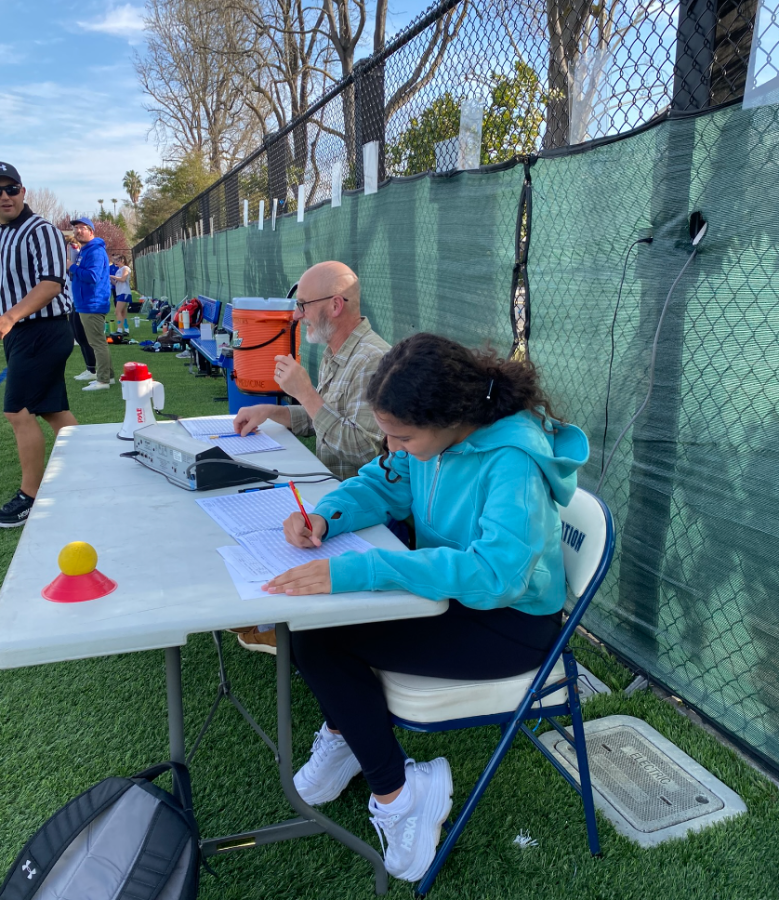What exactly goes into being a high school team manager?
Being a high school sports manager is an important role that requires a unique set of skills and a dedication to the sport. As a manager, they are responsible for ensuring that the team is prepared for their matches and meets, managing logistics, coordinating schedules and communicating with coaches, players and parents. At NDB, the duties of a sports manager differ from those of a professional, but can prove to be helpful skills.
One essential skill for a sports manager is organization. Keeping track of timing, coordinating transportation and communicating with coaches, players and parents requires a high level of organization. As a sports manager, one must be detail-oriented and able to manage multiple tasks simultaneously. This skill is transferable to many professions, especially those that require project management or event planning.
In addition to organization and communication, sports managers must be familiar with the rules
and regulations of each sport they manage. This includes understanding the scoring system, regulations regarding player eligibility and safety guidelines. Many students that choose to be managers have a passion for the sport or learning more about it. This role can also be one for injured players that would like to stay connected with the team.
“I originally started sophomore year when I was injured and I wanted to help out just with sports in general,” explained Lacrosse Manager Gabby Wylie-Chaney. “I emailed Mr. Levine, our former Athletic Director, in the spring and it happened to be that lacrosse had a spot for managing. So, I started it and then I kept going because I really liked the sport.”
Sports managers also need to be able to handle unexpected events and challenges. For example, if a player gets injured during a match, the manager must be able to handle the situation quickly and calmly. This ability to think on one’s feet and problem solve is a valuable skill in any career, especially those that require quick decision-making and adaptability. With this adaptability comes leadership. One must be able to motivate and inspire the team, build trust and foster a positive team environment. These skills are highly valued in leadership positions, including management and team leadership roles.
“Being a manager has vastly increased my knowledge of the sport,” said Wylie-Chaney. “I basically knew nothing about lacrosse, except that they use sticks, when I first started and now, I actually really like the sport. It’s probably one of my favorite sports to watch, at least. It is also one of the sports that I think I understand the most now. It definitely has become one of my favorites.”
Holding the role of a sports team manager is a job with bountiful opportunities. The ability to be communicative with goals and feedback, organized and maintaining a positive attitude can be difficult. However, with that comes bonding with the team and learning a lot about management as well as the sport.

Francesca Arbelaez was a Senior Editor her senior year and 2024 was her third and final year in the journalism program. Beginning her sophomore year, she...










